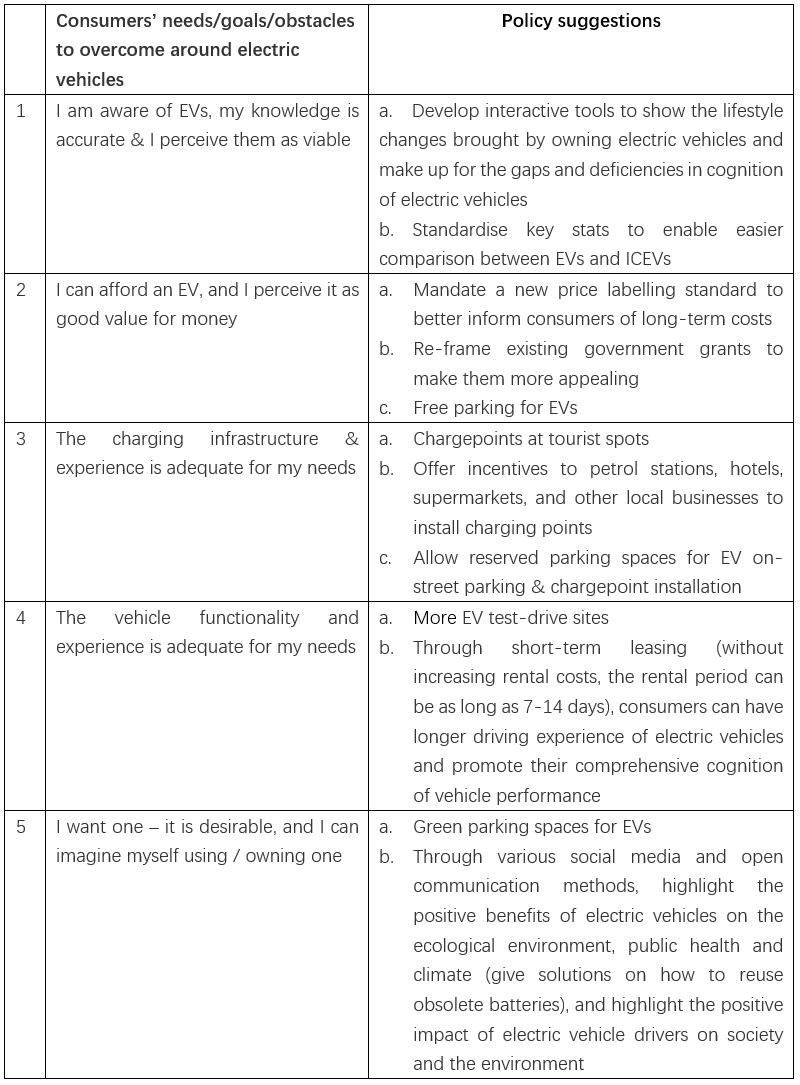

As the urgency of addressing global climate change intensifies and countries are under the influence of both cooperation and competition, accelerating the adoption of electric vehicles is a clear priority for the development of economy and climate policy agendas for major economies worldwide. Using the behavioral economics concept “Nudges” to help reduce emissions has also become an important policy choice. [1] The concept of “Nudges” was developed by US economist Richard H. Thaler in 2008 in his book “Nudge: Improving Decisions About Health, Wealth, and Happiness”, which argues that “Nudges” is a minimal, inexpensive form of policy intervention, a form of Choice Architecture, that can change people's behavior in a predictable way without restricting the options already available to the public or significantly changing people's economic incentives. Prof. Thaler, who is based at the University of Chicago, won the 2017 Nobel Prize in Economics alone for his work on behavioral economics.
“Nudges” has since became influencial among public policy makers in some countries. The Behavioral Insights Team, which grew out of the Cameron administration in the UK, is one of the most influential groups using behavioral economics to promote more effective public decision-making. [2] The institute, founded in 2010, focuses on how behavioral economics can provide effective solutions to a variety of public policy challenges, including climate, energy and the environment, with the adoption of electric vehicles as one of its discussed topics.
How does an active and abundant "Nudge" approach promote the adoption of electric vehicles
The International Energy Agency (IEA) expanded on the importance of changing consumers' behavior in achieving net zero emissions in its recent report “Net Zero by 2050,A Roadmap for the Global Energy Sector. [3] Changing consumers’ behavior is the key application of behavioral economics analysis. Therefore, the government and the electric vehicles industry should take behavioral economics as an important policy and marketing tool to design various “Nudges” methods to accelerate the popularization of electric vehicles, especially at a time when various domestic and foreign climate, energy and economic policies are interconnected, and endeavor to drive the road traffic sector into the path of rapid decarbonization.
Evidence based on case studies, consumers’ opinion surveys and social experiments is also valuable for policymakers to make concrete decisions to change consumer behavior and promote the adoption of electric vehicles. In other words, there is no shortage of alternative “Nudges” policies. Based on an analysis published in 2020 by the Behavioral Insights Team and the Transport Research Laboratory in the UK on how to drive and accelerate the adoption of electric vehicles, the author lists the "Nudges" methods as reference for policy makers in China, Japan and South Korea.
Table 1: Policy suggestions on how to deal with the five major obstacles of promoting electric vehicles by using “Nudges”

Notice: policy suggestions are excerpted from the Executive Summary of the report “Driving and accelerating the adoption of electric vehicles in the UK”. See Figure 2 on page 6 for the original text.
Link: https://assets.publishing.service.gov.uk/government/uploads/system/uploads/attachment_data/file/914111/driving-and-accelerating-the-adoption-of-electric-vehicles-in-the-uk.pdf
Understand Tesla in “Context Model”
The research on behavioral economics and psychology inspires decision makers to adopt the "Context Model" to change people's acceptance of new things and the subsequent consumption behavior. In the previous analysis article “Decarbonization of Road Traffic: How can Behavioral Economics Help?”, the author introduced the role of "Context Model” in promoting the development of electric vehicles. In the short history of global electric vehicle development, Tesla, an American electric vehicle manufacturer, is a typical enterprise example that uses the "Context Model” to reach commercial success.
Tesla's marketing strategies applied the "Context Mode” through highlighting the legendary experiences of the founder's new technology start-up, and building the brand connection between Tesla and SpaceX, a manned space flight enterprise. This association increased the public awareness of Tesla, where Tesla owners are viewed as "elites that enjoy and support the future of new technology", in turn, separating its brand perception from other electric vehicle manufacturers. Tesla has a vision of transforming the energy system in a sustainable way. As a result, the company began selling vehicle models to mainstream consumers in the last two or three years, which would expand its reach and benefit its long-term corporate strategy. Tesla's biggest competitors in the future will be traditional premium carmakers that have already used the “Context Model” to differentiate their brands in fuel vehicles industry, notably the German car companies Mercedes, BMW and Audi.
Conclusion
“Nudges” measures advocated by behavioral economics are more effective atachieving results in behavioral change, which has gradually attracted the attention of policymakers in many countries. Whether it is the “Context Mode” or the policy suggestions on facing the five major obstacles of electric vehicle promotion from the above table, its still difficult for researchers to identify quantitatively if a certain measure is effective in the popularization of electric vehicles. Although we are not able to carry out similar studies currently due to a lack of sufficient data, the author will try to use some data from the development of EVs and ride-sharing apps in China in the next article to analyze the reasons for the higher proportion of EVs in the ride-sharing industry and the associated lessons learned in the popularization of electric vehicles in China.
Note:
[1] Broughton, et al., 2020. The Behavioral Economy: a 10 point plan to upgrade economic policy. Link: https://www.bi.team/wp-content/uploads/2020/11/The-Behavioural-Economy-1.pdf
[2] 详细内容可参见机构网站,https://www.bi.team/about-us/who-we-are/
[3] Do we need to change our behavior to reach net zero by 2050? IEA, Paris. Link: https://www.iea.org/articles/do-we-need-to-change-our-behaviour-to-reach-net-zero-by-2050
Author:Zhao Ang
Translation: Chen Shikai
Proofread: Pan Yiren
This article is an original article of the Rock Environment and Energy Institute. Please contact us to obtain the appropriate authorization to reprint. For cooperation and authorization, please send an email to: liying@reei.org.cn
* This is the translation of an article in Chinese. Should there be any inconsistency between Chinese and English version, the Chinese version shall prevail.




